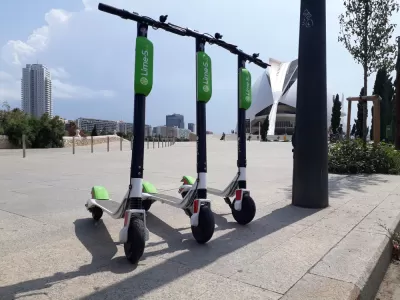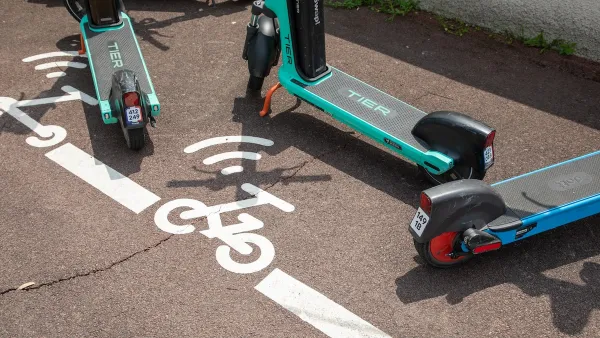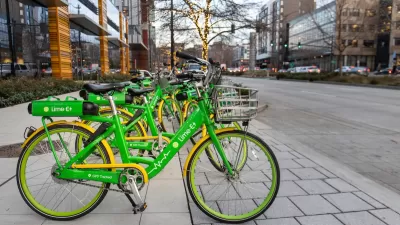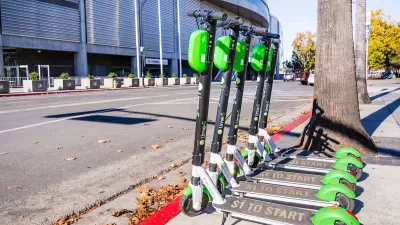Scooters have helped diversify the mobility landscape, but companies need to better address the recycling and reuse process and the environmental impacts of defunct devices.

Katie Pyzyk writes about life-span and end-of-life issues related to dockless scooters and the steps companies such as Lyft, Bird, and Lime are taking to address these concerns.
The life span of e-scooters is fairly short—a Boston Consulting Group report estimates the average life span is just three months, due partly to the fact that the devices are heavily used and endure a great deal of wear and tear. Sustainability concerns aside, the short life span and replacement costs affect the profitability of companies.
"Nearly all the major operators have announced efforts recently to ruggedize their devices and extend the life span. This includes more robust tires, sturdier bodies, improved brakes and longer battery life," notes Pyzyk.
The end-of-life processing of e-scooters—both recycling and reuse—is another issue, particularly the handling of hazardous electric batteries.
In addition to waste and disposal concerns, vandalism of e-scooters has posed sustainability challenges. For example, county sheriffs pulled 50 scooters from the Willamette River in Portland, Oregon, in June. "Divers were concerned the batteries would leak into the river. It’s unclear who put the scooters there or when, but some of them showed signs of rust," says Pyzyk.
FULL STORY: Reduce, reuse, rescoot? A look at e-scooters' long-term sustainability

Planetizen Federal Action Tracker
A weekly monitor of how Trump’s orders and actions are impacting planners and planning in America.

Congressman Proposes Bill to Rename DC Metro “Trump Train”
The Make Autorail Great Again Act would withhold federal funding to the system until the Washington Metropolitan Area Transit Authority (WMATA), rebrands as the Washington Metropolitan Authority for Greater Access (WMAGA).

The Simple Legislative Tool Transforming Vacant Downtowns
In California, Michigan and Georgia, an easy win is bringing dollars — and delight — back to city centers.

The States Losing Rural Delivery Rooms at an Alarming Pace
In some states, as few as 9% of rural hospitals still deliver babies. As a result, rising pre-term births, no adequate pre-term care and harrowing close calls are a growing reality.

The Small South Asian Republic Going all in on EVs
Thanks to one simple policy change less than five years ago, 65% of new cars in this Himalayan country are now electric.

DC Backpedals on Bike Lane Protection, Swaps Barriers for Paint
Citing aesthetic concerns, the city is removing the concrete barriers and flexposts that once separated Arizona Avenue cyclists from motor vehicles.
Urban Design for Planners 1: Software Tools
This six-course series explores essential urban design concepts using open source software and equips planners with the tools they need to participate fully in the urban design process.
Planning for Universal Design
Learn the tools for implementing Universal Design in planning regulations.
Smith Gee Studio
City of Charlotte
City of Camden Redevelopment Agency
City of Astoria
Transportation Research & Education Center (TREC) at Portland State University
US High Speed Rail Association
City of Camden Redevelopment Agency
Municipality of Princeton (NJ)





























